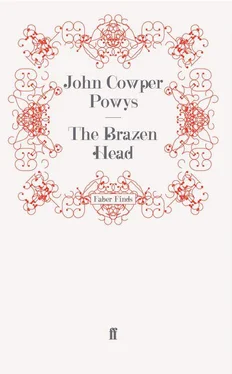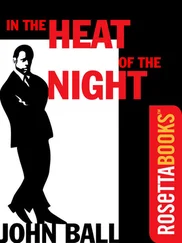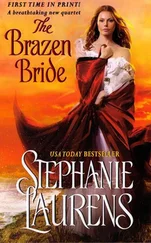And not only to them. To horses, dogs and cats, to birds in cages, to pigs in sties, to sheep in folds, to cattle in stalls — to them all he sang his song and danced his dance! When he was eating out-of-doors he would pay court to the nearest toad or frog or blind-worm. When he was sucking an orange before going to bed, he would make overtures to a spider.
He had no pride, and he had very little vanity. He was as conceited of his eyes, nose, mouth, ears, hair, legs, ankles, feet, as he was of his voice, his manners, and his knowledge of the world. It was enough that the quality, the feature, the member was his quality, his feature, his member, for it to be the most remarkable quality, feature, member in the world!
His self-admiration was wholly indiscriminate. He wasn’t vain of his hair, or of his eyes or his figure, or of his skill in riding or fencing, compared with other people’s hair and so forth. He compared them with nothing. They were his; and that alone made them incomparable.
Sir William never spent, as some young men do, considerable time at the mirror, arranging his hair, his expression, his pose, his dress, his gestures. He never wasted his own or other people’s time by explaining and justifying his opinions. They were his: that was enough. When asked for them he handed them to the asker, as a pilgrim might hand out pebbles from a sacred shore, or an exorcizer might sprinkle holy water on the walls of a haunted chamber.
He was younger than John, and a good deal younger than Tilton; whereas Raymond de Laon was over twenty-five. Sir William enjoyed life so intensely that it was a pleasure to everybody who knew him to be with him. So absolutely lacking in pride was he that he seemed to be as tickled by his own blunders, by his own foolishness, by his own cowardice, by his own weakness, by his own superstition, as were his friends in their affectionate entertainment and as were his enemies in their malicious amusement.
It must have been this gift of being all things to all men, on the strength of a conceit so immeasurable, that had enabled this singular boy at a yet earlier age to be actually able, under the wise encouragement of his father, to act in collusion with young John as one of the intermediaries between Roger Bacon and Pope Clement IV.
“How is your father’s injury from those Lost Towers devils?” enquired Lady Val of the lad, just as he was launching forth, for the benefit of Ghosta and her Tartar, upon a tale he had heard about a miraculous and terraqueous crusade of sea-eagles, who conveyed in their beaks from Chesil-Beach to the Holy Land enough pebble-stones of carnelian to enable the walls of Jerusalem to rival the hanging gardens of Babylon.
“O he’s healing up quick and easy, Lady,” replied Sir William: “the great difficulty at home just now is mother’s quarrel with both Raymond and Friar Bacon. She tells father he ought never to have invited Raymond here at all, because somebody younger, somebody more like me, she says, would look better going about with Lil-Umbra.”
These words caused even Ghosta to awake from a trance that had already made her lover recall the expression in the eyes of the horse Cheiron. But it can be imagined how they roused in Lady Val’s soul a sharp-pointed, outward-whirling arrow-head of flame-like fury. The idea of her only female offspring, the only daughter she would ever have — and do we not know that the closest association possible between human personalities is between a mother and a daughter? — becoming the official lady-love of this popinjay of a nursery-antic struck her on the quick.
She had had a good many more day-dreams about Lil-Umbra’s future than Lil-Umbra ever had herself. For just as her father did, Lil-Umbra lived in the four elements, and one of the reasons why she had such a special partiality for Heber Sygerius was that the old ex-bailiff had, like Sir Mort, only in a different way, unusual awareness of the less palpable and more mysterious qualities of earth, air, fire and water.
Thus it was that when young Sir William blurted this out about his mother’s attitude to Raymond de Laon, who, after all, was himself only a young man, an intense and violent surge of emotion rose in Lady Val’s deepest being, swept up from the pit of her stomach into both her breasts, whirled up dizzily from there into her brain, and finally exploded in an outburst, the essence of which was irrepressible fury with fate because her secret, wild, ideal dreams about her daughter’s future had been blighted forever; but, odd though it may sound, the form this fury took was nothing more or less than a desperate curiosity.
“Do, O please do, my dear William, tell me what that wise, clever, deep-seeing mother of yours finds wrong with Raymond de Laon! I expect she has a hundred times more insight than I shall ever have, and knows the world a hundred times better than I shall ever know it. Does your dear intellectual mother feel that something is wrong with Raymond’s religion, or with his morals, or with his manners, or with his proper wish to get on in the world and to give his wife, when he has a wife, a proper position in the world? Or does your deep-searching mother — come a bit nearer, my boy, for I don’t want to be overheard — feel that Raymond is perhaps not quite, not altogether, not wholly and entirely — I see you know what I mean, so I can speak quite simply — right in his mind? I have seen Lil-Umbra look strangely at him once or twice when they’ve been talking, as if he were saying something rather, you know what I mean, my dear boy, rather wild and — and funny?”
The youngest of all the knights on whom the aged and ailing son of the brother of Richard Coeur-de-Lion had bestowed the accolade shut his open mouth, half-closed his roving eyes, and frowned. He was evidently thinking hard: not pretending to think, but really thinking.
Then, with an upward leap of his whole slender little person and a metallic tinkling of the hilt of his dagger against the hilt of his sword as his excitable hands rushed to his belt, Sir William Boncor exclaimed eagerly: “Yes! oh yes! I heard him say once, when someone was talking about the Day of Judgment and the Last Day: ‘In my Philosophy,’ he said, ‘there is no Day of Judgment nor any Last Day. There is only Now . We are born. We grow up: we have children: we die. And then the next generation is born; grows up; and dies. That’s my Philosophy as to the way things go.”
Sir William’s flickering little frame subsided upon its heels with a gasp of ineffable self-satisfaction. The confident smile of generations of just men condemning a crazy aberration broadened upon his triumphant face. With a faint shrug of his shoulders he seemed to be saying to every doubting devil in the universe, “I am righteous, I am!” It was at this well-timed moment that the wily Mogol took advantage of the long, half-amused, half-puzzled, but by no means disarmed look, that Lady Val fixed upon the self-satisfied young knight, and without asking permission, or letting his companion make the slightest parting obeisance, took Ghosta’s arm and led her out of that vortex of crazy foam by the way they had entered it.
“Mother thinks,” Sir William began again, “that you don’t realize half of what Raymond puts into Lil-Umbra’s head. Mother even told father yesterday, when she was angry with him because he wouldn’t shave off his beard, that Raymond will soon be dressing up Lil-Umbra in boy’s clothes and taking her with him to Paris.”
The unction with which this youngest of all the newly-dubbed knights at the court of the doting old man, who had reigned longer than any living monarch in Christendom, let these words fall upon Lady Val’s tense nerves, was like the squeezing of a gobbet of spikenard upon an itching skin. As the ointment oozed forth upon the inflamed place, the fever behind it was driven in, not drawn out.
Читать дальше











